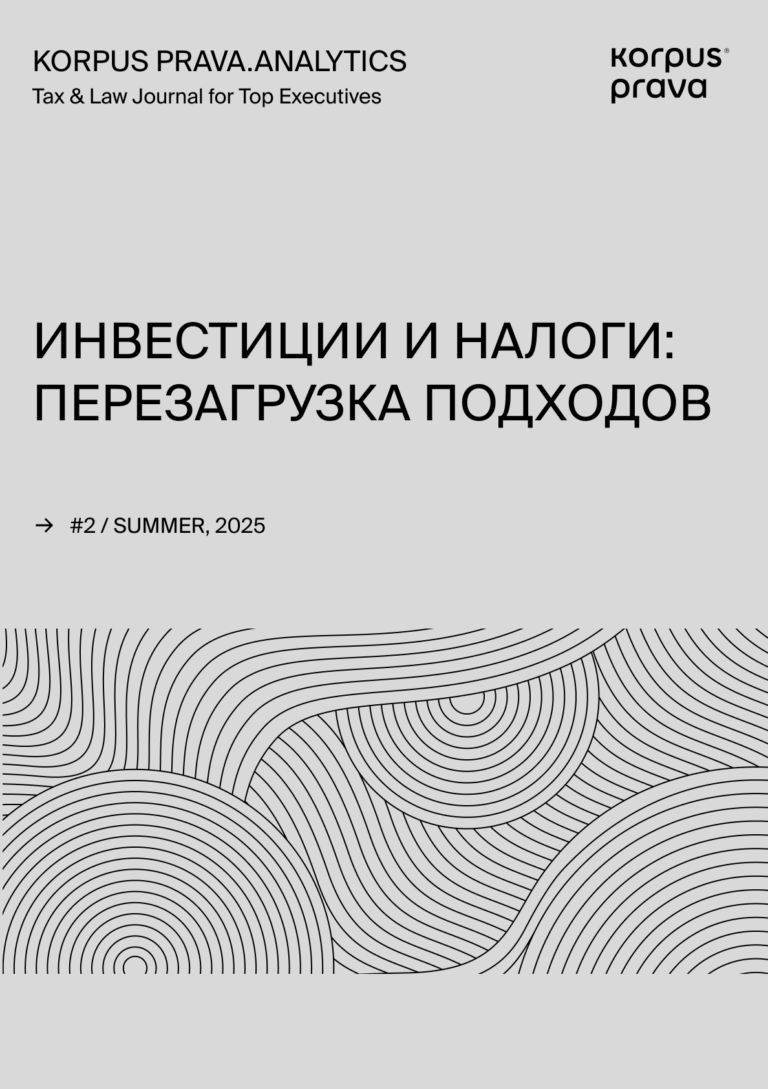В поисках форс-мажора…
В связи с введением на территории ряда регионов Российской Федерации ограничительных мер, направленных на борьбу с распространением вирусной инфекции, возникает множество сложностей, связанных с невозможностью исполнением сторонами своих обязательств, срывом мероприятий, сроков поставки и пр.
Возможность признания тех или иных сложившихся обстоятельств форс-мажором зависит как от конкретных условий заключенного договора, так и от наличия причинно-следственной связи между наступившими обстоятельствами (причиной) и невозможностью исполнения договорных обязательств (следствием).
Попробуем разобраться в этом подробнее.
Что такое форс-мажор?
Под форс-мажором (обстоятельствами непреодолимой силы) понимаются чрезвычайные и непредотвратимые при данных условиях обстоятельства, сделавшие невозможным исполнение обязательства.
Под чрезвычайностью понимается исключительность, выход за пределы «нормального», обыденного, необычайность для тех или иных жизненных условий, что не относится к жизненному риску и не может быть учтено ни при каких обстоятельствах.
Непредотвратимость означает, что любой участник гражданского оборота, осуществляющий аналогичную с должником деятельность, не мог бы избежать наступления этого обстоятельства или его последствий.
Чрезвычайный характер непреодолимой силы не допускает квалификации в качестве таковой любого жизненного факта. Ее отличие от случая в том, что она имеет в основе объективную, а не субъективную непредотвратимость.
Что не признается форс-мажором?
Форс-мажорными не признаются обстоятельства, наступление которых зависело от воли или действий стороны обязательства, в том числе такие обстоятельства, как1:
- отсутствие у должника необходимых денежных средств;
- отсутствие на рынке нужных товаров;
- нарушение обязательства контрагентом;
- неправомерные действия представителя должника;
- финансово-экономический кризис2;
- противоправные действия третьих лиц (кража, поджог, умышленное повреждение чужого имущества и пр.)3;
- утрата, повреждение груза в результате возгорания в процессе перевозки его профессиональным перевозчиком, хищения груза третьими лицами4;
- отзыв лицензии у банка5;
- изменение валютного курса, девальвация национальной валюты6;
- банкротство контрагента кредитора7.
Указанные обстоятельства в большинстве своем суды относят к предпринимательским рискам. И даже если некоторые вышеперечисленные обстоятельства стороны отнесли в договоре к форс-мажорным, это не дает стопроцентную гарантию, что оно будет признано таковым судом. В каждом конкретном случае суд будет выяснять, являлось ли обстоятельство чрезвычайным и непредотвратимым, мог ли должник что-то предпринять в целях предотвращения негативных последствий (например, умышленного поджога можно избежать путем усиления охраны объекта; попадания молнии и последующего возгорания – установкой громоотвода и т.д.).
Что может быть отнесено к форс-мажору?
К форс-мажору могут быть отнесены природные чрезвычайные ситуации (штормовая погода8; паводок, потребовавший введения режима чрезвычайной ситуации9; аномальные атмосферные осадки10), явления общественной жизни и стихийные бедствия11 (землетрясение, наводнение, ураган), пожар, массовые заболевания (эпидемии), забастовки, военные действия, террористические акты, диверсии, ограничения перевозок, запретительные меры государств, запрет торговых операций и другие не зависящие от воли сторон договора (контракта) обстоятельства.
Какие последствия признания обстоятельств форс-мажором?
По общему правилу, лицо, не исполнившее или ненадлежащим образом исполнившее обязательство вследствие обстоятельств непреодолимой силы, освобождается от ответственности за его неисполнение (ненадлежащее исполнение).
Здесь необходимо понимать, что форс-мажор не отменяет самого обязательства, а лишь освобождает от ответственности за его неисполнение. Например, арендатор может быть освобожден от неустойки, взимаемой за нарушение сроков арендной платы, но не освобождается в принципе от обязанности вносить арендную плату. Равно также и поставщик не освобождается от обязанности поставить товар, а покупатель – от обязанности по его оплате.
Может ли пандемия быть признана форс-мажором?
Как выше было отмечено, эпидемии и массовые заболевания могут быть отнесены к обстоятельствам непреодолимой силы.
Однако, следует отметить, что в большинстве случаев форс-мажором признается не сама пандемия (вирусная инфекция), а ее последствия в виде мер ограничительного характера.
Так, введение ограничительных мер в целях препятствия распространению вирусной инфекции уже признано в качестве чрезвычайных, непредвидимых, непредотвратимых, находящихся вне контроля сторон и оказывающих существенное влияние на исполнение обязательств по хозяйственным договорам различными органами и учреждениями, в т.ч. Торгово-Промышленной Палатой РФ, Федеральной Антимонопольной службой, Минфином России12. В некоторых региональных нормативных актах, вводящих ограничения, также содержится квалификация сложившихся обстоятельств в качестве чрезвычайных и непредотвратимых.
В то же время следует учитывать, что факт признания данных обстоятельств форс-мажором не позволяет автоматически применять положения о форс-мажоре ко всем договорным обязательствам.
Согласно разъяснениям Верхового суда РФ, признание распространения новой вирусной инфекции обстоятельством непреодолимой силы не может быть универсальным для всех категорий должников, независимо от типа их деятельности, условий ее осуществления, в том числе региона, в котором действует организация, в силу чего существование обстоятельств непреодолимой силы должно быть установлено с учетом обстоятельств конкретного дела (в том числе срока исполнения обязательства, характера неисполненного обязательства, разумности и добросовестности действий должника и т.д.).
Вызванные угрозой распространения новой вирусной инфекции, а также принимаемые меры по ограничению ее распространения (в т.ч. установление обязательных правил поведения при введении режима повышенной готовности или чрезвычайной ситуации, запрет на передвижение транспортных средств, ограничение передвижения физических лиц, приостановление деятельности предприятий и учреждений, отмена и перенос массовых мероприятий, введение режима самоизоляции граждан и т.п.) могут быть признаны обстоятельствами непреодолимой силы, если будут установлены их соответствие названным выше критериям таких обстоятельств и причинная связь между этими обстоятельствами и неисполнением обязательства13.
Каковы условия освобождения от ответственности?
С учетом вышеизложенного для освобождения от ответственности за неисполнение своих обязательств сторона должна доказать наличие совокупности следующих условий:
- наличие и продолжительность обстоятельств непреодолимой силы;
- наличие причинно-следственной связи между возникшими обстоятельствами непреодолимой силы и невозможностью либо задержкой исполнения обязательств;
- непричастность стороны к созданию обстоятельств непреодолимой силы;
- добросовестное принятие стороной разумно ожидаемых мер для предотвращения (минимизации) возможных рисков.
Отсутствие хотя бы одного условия может лишить сторону права ссылаться на наличие обстоятельств непреодолимой силы.
Чем подтвердить обстоятельства наступления форс-мажора?
Чтобы обосновать наступление форс-мажора, необходимо собрать соответствующие доказательства и незамедлительно уведомить контрагента. По общему правилу подтверждением форс-мажорных обстоятельств является сертификат, выданный Торгово-Промышленной Палатой РФ. С 26 марта 2020 года региональные Торгово-Промышленные Палаты получили полномочия выдавать заключения о наступлении форс-мажора в том числе по всем внутренним договорам. Причем такие сертификаты стали выдавать бесплатно14. Срок уведомления контрагента (как в прочем и процедура уведомления), как правило, предусмотрен в договоре. В случае, если этот вопрос договором не урегулирован, целесообразно это сделать в максимально короткий срок.
Является ли форс-мажор основанием для изменения или расторжения договора?
Как выше было отмечено – сам по себе форс-мажор не освобождает стороны от исполнения обязательств (стороны освобождаются лишь от ответственности за их неисполнение). Таким образом, если в текущих условиях договор становится необоснованно обременительным, сам договор не предусматривает возможность его изменения/расторжения, а контрагент не соглашается идти на встречу – целесообразно рассмотреть возможность его изменения или расторжения по решению суда.
Так, по общему правилу существенное изменение обстоятельств, из которых стороны исходили при заключении договора, является основанием для его изменения или расторжения, если иное не предусмотрено договором или не вытекает из его существа15.
Изменение обстоятельств признается существенным, когда они изменились настолько, что, если бы стороны могли это разумно предвидеть, договор вообще не был бы ими заключен или был бы заключен на значительно отличающихся условиях. Если стороны не достигли соглашения о приведении договора в соответствие с существенно изменившимися обстоятельствами или о его расторжении, договор может быть расторгнут или изменен (изменение допускается в исключительных случаях, когда расторжение договора противоречит общественным интересам либо повлечет для сторон ущерб, значительно превышающий затраты, необходимые для его исполнения на измененных судом условиях) судом по требованию заинтересованной стороны при наличии одновременно следующих условий:
- в момент заключения договора стороны исходили из того, что такого изменения обстоятельств не произойдет;
- изменение обстоятельств вызвано причинами, которые заинтересованная сторона не могла преодолеть после их возникновения при той степени заботливости и осмотрительности, какая от нее требовалась по характеру договора и условиям оборота;
- исполнение договора без изменения его условий настолько нарушило бы соответствующее договору соотношение имущественных интересов сторон и повлекло бы для заинтересованной стороны такой ущерб, что она в значительной степени лишилась бы того, на что была вправе рассчитывать при заключении договора;
- из обычаев или существа договора не вытекает, что риск изменения обстоятельств несет заинтересованная сторона.
При расторжении договора вследствие существенно изменившихся обстоятельств суд по требованию любой из сторон определяет последствия расторжения договора, исходя из необходимости справедливого распределения между сторонами расходов, понесенных ими в связи с исполнением этого договора.
Требование об изменении или о расторжении договора может быть заявлено стороной в суд только после получения отказа другой стороны в ответ на предложение изменить или расторгнуть договор либо после неполучения ответа в срок, указанный в предложении или установленный законом либо договором, а при его отсутствии – в тридцатидневный срок.
Следует учитывать, что в случае изменения или расторжения договора обязательства считаются измененными или прекращенными с момента вступления в законную силу решения суда. То есть на весь период судебного разбирательства договор будет считаться действующим. В связи с этим, перед принятием решения об обращении в суд с требованием о расторжении/изменении договора целесообразно проверить наличие иных оснований для внесудебного отказа от договора или его расторжения. Более подробно читайте в статье Артема Палеева.
- Пункт 8 Постановления Пленума Верховного Суда РФ от 24.03.2016 № 7, пункт 3 статьи 401 Гражданского кодекса РФ.
- Постановления ФАС Московского округа от 01.09.2010 № КА-А40/9199-10, ФАС Поволжского округа от 21.05.2013 по делу № А55-25687/2012.
- Постановление Президиума ВАС РФ от 09.06.1998 N 6168/97.
- Пункт 1 Обзора, утвержденного Президиумом Верховного Суда РФ 20.12.2017.
- Постановление Арбитражного суда Московского округа от 28.03.2016 N Ф05-2728/2016.
- Постановление Арбитражного суда Московского округа от 03.08.2017 № Ф05-9562/2017 по делу № А40-129109/2016.
- Определение Верховного Суда РФ от 06.12.2005 N 49-В05-19.
- Определение Верховного Суда РФ от 01.09.2015 N 303-ЭС15-5226.
- Постановление Арбитражного суда Дальневосточного округа от 28.11.2014 N Ф03-5191/2014.
- Постановление Арбитражного суда Московского округа от 09.12.2015 N Ф05-16473/2015.
- Пункт 1.3. Положения о порядке свидетельствования Торгово-промышленной палатой Российской Федерации обстоятельств непреодолимой силы (форс-мажор) (приложение к постановлению Правления ТПП РФ от 23.12.2015 № 173-14).
- Письмо Торгово-Промышленной Палаты РФ исх.ПР-0315 от 26.03.2020, Письмо ФАС России от 18 марта 2020 г. N ИА/21684/20, Письмо Минфина России от 19 марта 2020 г. N 24-06-06/21324.
- «Обзор по отдельным вопросам судебной практики, связанным с применением законодательства и мер по противодействию распространению на территории Российской Федерации новой вирусной инфекции (COVID-19) N 1″(утв. Президиумом Верховного Суда РФ 21.04.2020). Ответ на вопрос 7.
- Письмо Торгово-Промышленной Палаты РФ исх.ПР-0315 от 26.03.2020.
- Пункт 1 статьи 451 Гражданского кодекса РФ.


